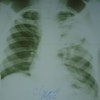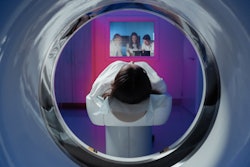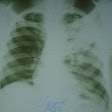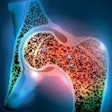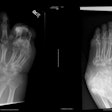The launch of a U.K. document about standards for reporting practitioners in adult chest x-rays has ignited a fierce debate about differences in the requirements for radiographers and trainee radiologists. It is "an unholy mess" and is purely about training standards for nonradiologists, one expert said.
A central aim of "Standards for the education, training and preceptorship of reporting practitioners in adult chest x-ray" -- a joint publication from the Royal College of Radiologists (RCR) and the Society and College of Radiographers (SoR/CoR) issued on 30 June -- is to define the education and training required for all members of the multiprofessional team who report chest x-rays within a clinical imaging service, the authors wrote.
"It is expected that other reporters operating outside of a clinical imaging service should follow the same standards for education and training to ensure that they are trained to the same level of overall competence," they pointed out. "Any practitioner who is reporting an adult chest x-ray formally should fulfil the criteria in this document."
The standards describe the process for training radiographers to sign off their own chest x-rays, which includes the following:
- An unspecified departmental teaching period
- Unspecified number of workplace-based assessments
- A pass/fail assessment over 100 chest x-rays with a 90% pass mark
- A trial period involving 400 chest x-rays checked by a consultant
This is a controversial topic because the criteria are different for radiology trainees, who need a lot more experience to become independent, a radiology trainee told AuntMinnieEurope.com in an email on 3 July.
Stinging criticism
According to another expert source who wished to remain anonymous, the document is "an unholy mess" and is purely about training standards for nonradiologists.
"I detect a strong hand of radiographers throughout the authoring," he explained. "Note that it refers to 'clinical imaging service' throughout the text, and radiology is not mentioned anywhere. It talks about a 'scope of practice' -- radiologists don’t have this. We don’t have the option of not reporting something. Who else is going to do it?"
The source said he is not opposed to training radiographers to read x-rays because they are "a natural first port of call" as they work in the same department and understand the techniques, the anatomy, etc., but there must be appropriate training standards.
"For radiographers there is no consistent standard. There is a single unified course for plain film reporting, no national diploma, no college degree," the source noted. "This perpetuates a lack of consistent standard. It gives pointers, but it doesn’t mandate anything other than there should be a test of 100 cases and 400 should be double-reported. The document also mentions that radiographers can train other radiographers."
If radiologists and radiographers are not trained to the same standard, "then you are condoning a two-tier service," he added.
"My criticism is that there is no rigour. There is nothing objective. There is no absolute standard. The worry is that substandard people are waved through, and the system could be shortcut by unscrupulous individuals," he said. "Who is setting the test? What are their qualifications? What is the mark scheme? The problem with having no rigour in any assessment means that it has little power. No one trusts it."
The solution is a national process and a single RCR-run examination: one part for chest x-rays, and another for accident and emergency scans, the source continued. "Want to report plain radiographs? Fine, pass this exam. Radiologists and radiographers sit the same thing. If you added in CT, MRI and maybe nuclear medicine, then you could call it the FRCR…"
Twitter talk
On Twitter, Dr. Richard FitzGerald, former vice-president of the RCR, has raised the question: "Why are @RCRadiologists Training Standards for #Radiographers Different than for #Radiology Registrars?"
"Isn't this going to be a massive problem medico-legally?" asked Rohan Aziz, a fifth-year medical student at the University of Leeds (incoming FY1 at Bradford Royal Infirmary).
"The problem started when you (the U.K.) accepted reporting radiographers who have not finished medical school… now one thing brings another… since you have already accepted that some exams can be reported by people without a medical degree, why should the standards be the same?" wrote Dr. Mike Klontzas, PhD, a radiology resident at University General Hospital of Heraklion (PAGNI), Greece, who holds a PhD from Imperial College London (2018) and a second PhD from the University of Crete (2023).
"Shocking sell outs. Continued cheapening of the profession to fill gaps brought about by government underfunding," noted Dr. Shaun Quigley, an interventional radiologist in Sydney, Australia.
To download a free copy of the document, go to the RCR website. The Health Education England (HEE), now part of NHS England, has provided financial support and recognition for the new standards. The British Society of Thoracic Imaging and the British Society of Cardiovascular Imaging were also involved in the project.


